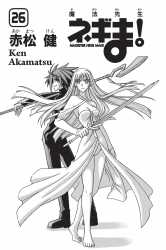>>193020122If this seems like the official translations made a simple mistake, let me give them a point or two in their defense:
Point 1: Chamo says, specifically 引き分けたことがあるらしい.
Hikiwaketa kotogaaru rashii.
hikiwaketa is the past tense form of hikiwakeru, which means to fight to a stand still or pull apart. kotogaaru is "koto ga aru", which is basically "this thing exists". rashii is "it seems." So, "it seems hikiwaketa happened".
Why is this important? Because Chamo only uses the past tense form of of the verb hikiwakeru.
Japanese verbs change their endings depending on context, and Japanese has a specific form they use when they want to indicate that something made a thing to happen, or force a thing to happen. It's called the causitive form, and to quote the Tae Kim page (
http://www.guidetojapanese.org/learn/grammar/causepass):
"Verbs conjugated into the causative form are used to indicate an action that someone makes happen. Like Captain Picard so succinctly puts it, the causative verb means to “make it so”. This verb is usually used in the context of making somebody do something."
Why is it potentially important that Chamo DIDN'T use this verb form? Because if Jack Rakan specifically did fought the dragon to a stand still, then I think Chamo might have used that verb form, to indicate that yeah, Jack Rakan made the Dragon stop. He caused it to stop, even when it (probably) didn't want to. So since Chamo didn't say that specifically, the translators might have thought that "tear apart" was the meaning Chamo was going for.
Point 2: They did mention in one of the earlier volume notes that the dragon is a super powerful being, so strong that "even if you destroy its body. it won't actually be dead" or something. So maybe the translators figured what Chamo said was an allusion to that trait of the dragon.
Personally, though, I feel given the context, it's more likely that "fought to a sandstill" is the more accurate TL.

